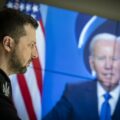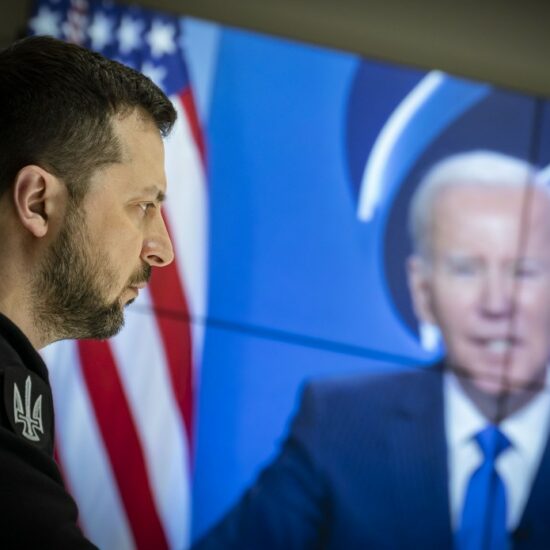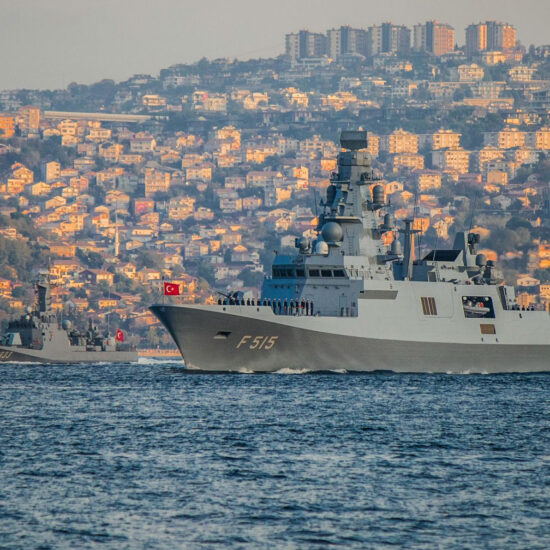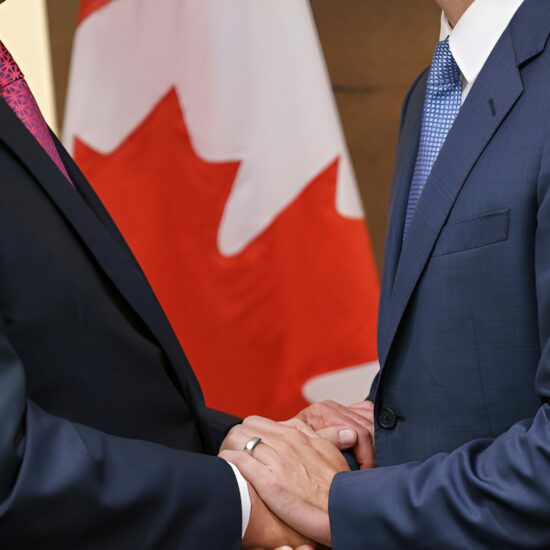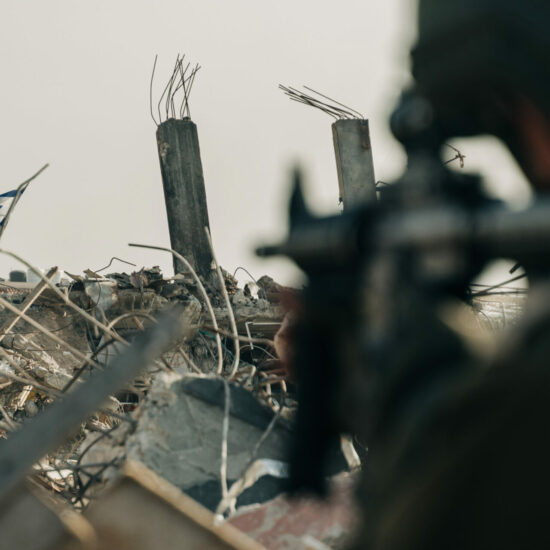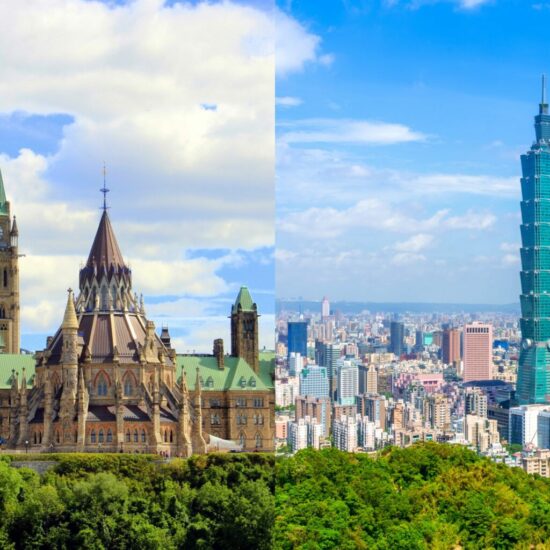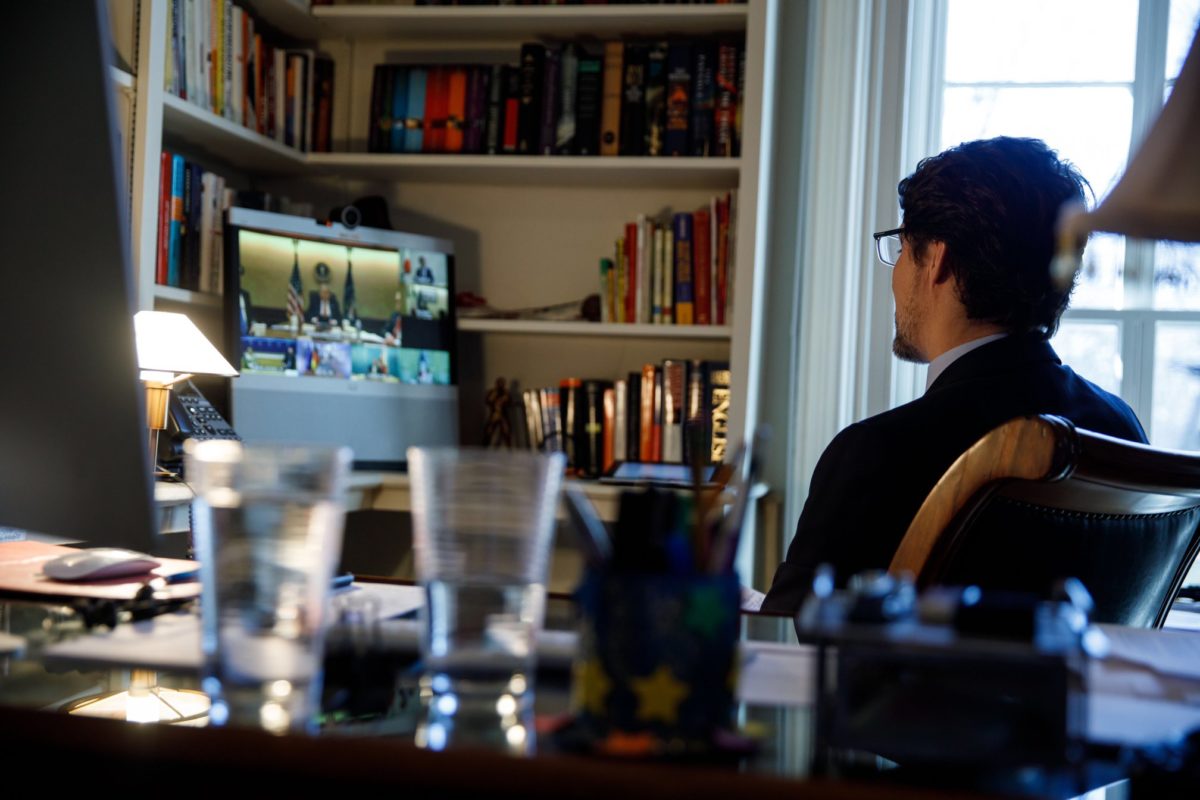
By Sarah Sutherland and Bailey Cordrey
On September 23, 2020, the Institute for Peace and Diplomacy (IPD) held a virtual panel discussion on “The Impact of COVID-19 on Canada’s Foreign Policy.” Supported by the Department of National Defence’s Mobilizing Insights in Defence and Security (MINDS) program, the discussion was part of IPD’s series on the impact of COVID-19 on international peace and security.
The discussion brought together experts from various sectors to discuss the intricacies of how the COVID-19 pandemic has transformed Canada’s global strategy. The ultimate aim of this conversation was to identify how Canada could apply lessons from the pandemic to rethink its approach to international affairs and refocus its diplomatic attention on key areas like gender equality, humanitarian aid, and stronger bilateral ties. We were pleased to have the Honourable Sergio Marchi, Canada’s former Ambassador to the World Trade Organization and United Nations in Geneva; Dr. Erica Di Ruggiero, Director of the Centre for Global Health at the University of Toronto; and Mr. Wesley Wark, a Senior Fellow at the Centre for International Governance Innovation (CIGI), on the panel to discuss such crucial issues.
Moderated by Catherine Clark, Co-Founder of The Honest Talk, the discussion focused on Canada’s shifting priorities—particularly in the context of rising tensions between the United States and China. Ms. Clark began by asking the panelists how Canadian foreign policy should change in the wake of the pandemic, and how this shift should take place. Mr. Marchi noted that Canada must “be more active and engaged with bilateral relations […] than we are now.” This is primarily because most coordinated action against COVID-19 has come from national and subnational governments, rather than global networks such as the United Nations (UN). To catalyze international action and combat mis/disinformation, the UN should be used as a key forum for regularly sharing evidence-based pandemic response recommendations from the Secretary-General’s office. Such an approach could better facilitate technology and information transfers to countries lacking public health resources, resulting in a safer environment for everyone.
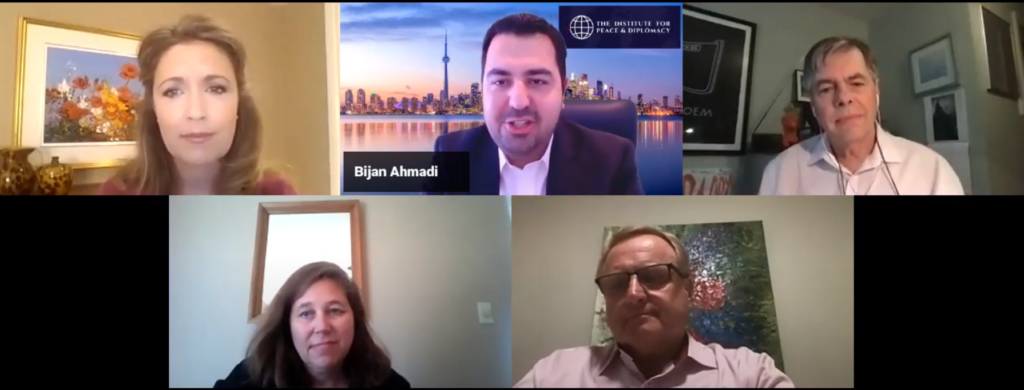
Dr. Di Ruggiero echoed Mr. Marchi’s points, noting that we “should welcome a full foreign policy review,” as the pandemic has drawn attention to crucial cracks in our national and international emergency response systems. COVID-19 has exposed “massive inequalities in our health system,” and to ensure that Canada emerges stably out of the pandemic, a thorough policy review is absolutely essential. To best account for such glaring externalities, Dr. Di Ruggiero suggested that “all Canadians need to have a voice in the review.”
Mr. Wark added that Canada must also consider how it can reinforce multilateral systems, as their maintenance is central to the stability of critical supply chains. Mr. Wark was of the opinion that Canada could have more effectively leveraged its multilateral networks during the early stages of the pandemic to fully understand the scope of the virus’ risks—particularly given the rampant disinformation campaigns that have since emerged.
Ms. Clark followed up by asking the panelists to shed light on how Canada could support coordinated global governance through membership in various international forums outside of the UN. Given the wide scope of Canada’s foreign policy objectives, Mr. Marchi noted that Canada would need to “clarify and renew [its] priorities” globally. He further echoed Dr. Di Ruggiero’s earlier point that a comprehensive foreign policy review was needed, as decades had passed since the last one of its kind. In order to undertake such a monumental task, the panelists were in consensus that the federal government should form an all-party parliamentary committee, composed of both House and Senate members, to devise a set of recommendations for the federal government.
Part of this review—and forthcoming foreign policy strategy—should also include reinvestment in Canada’s diplomacy infrastructure, as such work has been consistently underfunded over the past two decades. Mr. Marchi highlighted that “if we want to have a robust, meaningful foreign policy, Canada cannot approach the world” with scarce resources. This position was also held by Mr. Wark, who suggested that other international forums, such as the Five Eyes Intelligence Partnership, have the potential to become a forum for expansive Canadian engagement and leadership. The G20 presents a similar opportunity for revitalized multilateralism under Canadian influence, given its more “diverse and globalized membership.” As the United States continues to regress from international leadership, Canada is perfectly positioned to take on a prominent role in key global forums.
Ms. Clark asked Dr. Di Ruggiero to explain the emerging concept of ‘global health diplomacy,’ and position its importance within Canada’s domestic health sector. Dr. Di Ruggiero underscored the significance of maintaining resilient health systems because global distribution of a COVID-19 vaccine would be impossible, if not for strong national networks. To meet the challenges of fighting a global pandemic, the health sector has expanded to include unconventional public, private, and non-profit actors—all competing for the same pool of resources. To play to the strengths of such a large network, a clear set of global and context-specific priorities, akin to the Sustainable Development Goals, should be established by an international health authority. Dr. Di Ruggiero suggested the World Health Organization (WHO) and highlighted its dilemma to perform such important and life-saving duties while suffering from a chronic lack of funds and resources. The importance of multilateralism in funding these initiatives and organizations cannot be understated; however, the domestic pressures of COVID-19 are pushing states to adopt increasingly protectionist and nationalistic measures.
Dr. Di Ruggiero also offered a glimpse of the important work undertaken by the University of Toronto, alongside the Office of International Affairs and the Geneva Institute, to develop best practices and training materials intended to support the momentum towards global health diplomacy.
Addressing a question from the audience, Ms. Clark asked the panelists about the possible repercussions of Joe Biden winning the November American election, in light of such heavy damage inflicted against bilateral relations under the authority of the Trump administration. The Canadian-American relationship has arguably hit a new low over the last four years, noted Mr. Marchi. He suggested that a Biden presidency would offer an “opportunity of resetting this relationship that has gone astray,” although Canada may still have to guard itself on the trade front.
Another diplomatic relationship of concern for Canada is the one it shares with China. Mr. Wark argued that this relationship is strained by China’s perception of Canada. Their government does not see Canada as a strong middle power; rather, it views Canada as a “minor and annoying ally of the United States.” This perception was confirmed with the arrest of Meng Wanzhou under an extradition treaty Canada shares with the United States. Until Canada can offer a new narrative, Mr. Wark believes the relationship will remain in what he considers to be a “deep freeze.” To counter, the idea of a Western coalition that could effectively leverage more balanced relations with China was discussed between Mr. Marchi and Dr. Di Ruggiero.
Canada’s ‘Feminist International Policy’ was also discussed in relation to the federal government’s actions both abroad and domestically. Dr. Di Ruggiero emphasized that COVID-19 has helped show that “there are disproportionate impacts on different parts of the population and it is not the great equalizer.” In times of crisis, women (and women of colour in particular) experience greater health-insecurity; and more than 70 percent of the health workforce is made up of women, thereby increasing proximity to communicable viruses. Dr. Di Ruggiero also discussed the possibility that we are entering a ‘She-cession,’ in which women are increasingly pushed out of the workforce due to the instability that characterizes culturally feminine jobs. There is room for Canada to spearhead a global response to the approaching ‘She-cession’ and ensure that women remain a central part of the economy.
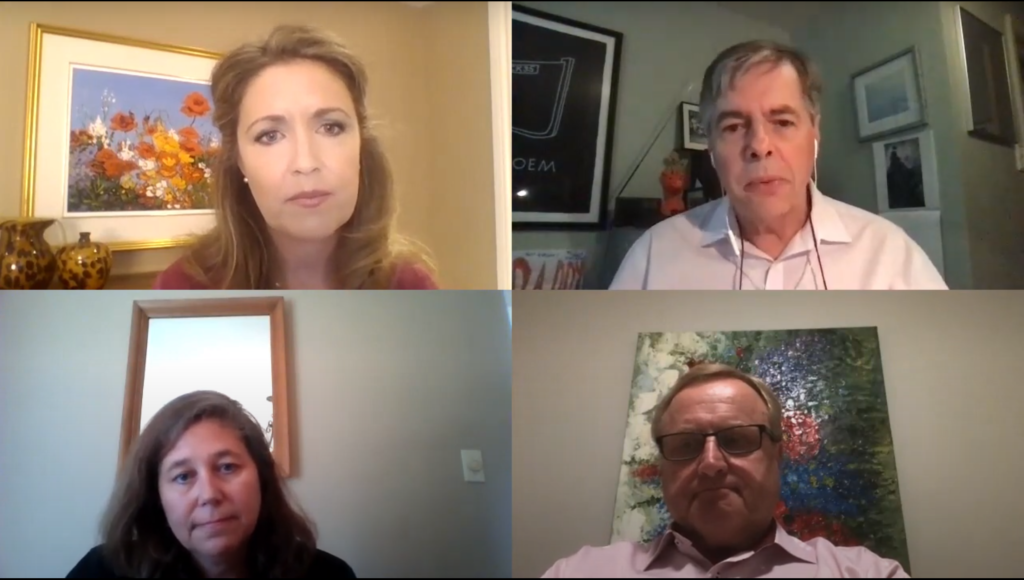
Speaking to a question from the audience, Mr. Wark noted that although the North Atlantic Treaty Organization (NATO) may be a military alliance, it could still leverage its influence in relation to understanding European regional politics and addressing threats from Russia. He further underscored that there are other international forums in which Canada could engage to carry forth coordinated international action on issues of global importance.
Turning to Mr. Marchi, Ms. Clark questioned how the federal government could reasonably expect Canadians to invest in other country’s economies, at a time when many feel compelled to support domestic businesses. Although it’s a challenging balance, Mr. Marchi offered that if “we don’t address the challenges of the globe, those challenges are going to end up at our doorstep.” He pointed to the refugee crises as a prime example: the world failed to adopt a rights-respecting global migration policy, leaving each state to develop their own individual strategies that fundamentally lack the capacity to deal with its root causes. A dollar invested abroad is, therefore, a dollar invested in Canada because the global connectivity of our economic systems has ensured that we cannot be indifferent to international needs.
Dr. Di Ruggiero noted that she and her colleagues have signed a statement of support to the COVID-19 Vaccine Global Access Facility, which aims to provide “equitable access to safe and effective vaccines.” Though there is immense pressure to develop a vaccine as soon as possible, we cannot compromise on quality or safety for the sake of speed. Dr. Di Ruggiero also shared that the Coalition for Epidemic Preparedness Innovation—which brings together the GAVI Alliance and the WHO—has been created to accelerate the creation and dispersal of vaccines. This is particularly notable considering that over ninety states participating in the Coalition would otherwise be shut-out from accessing COVID-19 vaccines when they come to market. Countries like Canada should therefore continue investing in similar international coalitions to ensure that all people have equal access to crucial equipment and medicine.
Changing pace, Mr. Wark noted that intelligence breakdowns contributed to Canada’s failed early pandemic response. The Public Health Agency of Canada (PHAC), created in 2004, was tasked with conducting both domestic and international health surveillance activities. However, it is clear that Canada and its agencies suffered “a serious failure of early warning with regards to the outbreak of COVID-19 in China and its progress globally.” Mr. Wark supplied that Canada was unable to act on the information sources it had available, including the Global Public Health Intelligence Network, in the early stages of the pandemic. Canada also failed to undertake a sufficient risk assessment of the virus and its potential impacts—as the threat assessment made by PHAC between January and mid-March indicated the risk to Canada was low. “That was a terrible failure of judgement and we have to look at the system […] that produced such bad threat assessments,” noted Mr. Wark.
In part, this failure was due to the fact that PHAC was, for all intents and purposes, isolated from the rest of Canada’s security and intelligence infrastructure. Mr. Wark concluded that such a siloed approach is no longer appropriate given that global health security crises are also national security crises.
To close the panel discussion, an audience member questioned how Canada could realistically change China’s perception of the nation going forward. One of the central issues, argued Mr. Marchi, is that the “China of 2016 is no longer the China of 2020.” From the arrests of Michael Kovrig and Michael Spavor to retaliatory Chinese tariffs against Canada following the arrest of Meng Wanzhou in Vancouver, China has shifted its stance on global diplomacy. It was underscored that many Canadian leaders across public and private venues alike are interested in increasing national manufacturing capacity. Mr. Wark noted that although Canada may not be able to completely decouple its economy and trade from China, the country can work towards manufacturing key pieces of critical infrastructure. Overall, panelists agreed that Canada should initiate discussions on how to secure post-pandemic supply chains and internalize the production of nationally significant goods.

